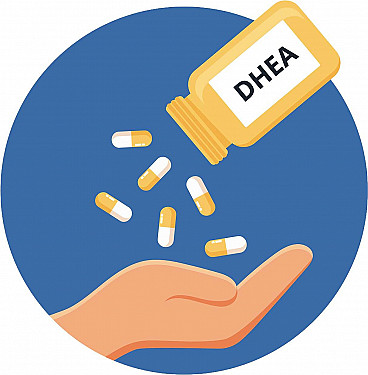Ask the doctor: Are supplements good for health?
 Q. Why can't doctors decide if vitamin supplements are good for your health, or not?
Q. Why can't doctors decide if vitamin supplements are good for your health, or not?
A. You might think that it would be simple for doctors to determine if vitamin supplements are good for your health. Alas, it's not. Here's why.
We've known for a long time that people get sick with what are called vitamin-deficiency diseases if they don't get a certain minimum amount of each vitamin. An example is scurvy, which develops when someone fails to get adequate vitamin C. However, in the developed nations today, it's unusual for people to have such a poor diet that they are vitamin-deficient.
The popularity of vitamin supplements has been driven, in part, by observational studies of large numbers of people, followed for decades. Many such studies have shown that people who eat lots of vitamin-rich foods may receive health benefits in addition to avoiding the vitamin-deficiency diseases.
For example, studies found that people who ate foods rich in vitamin E might have lower rates of dementia. But these foods have plenty of other nutrients that might have been responsible. Or it might not have been the foods at all. It might have been that people who ate vitamin E–rich foods also did something else—like exercising more and not smoking—that was responsible for the lower rates of dementia.
To test the possibility that a particular vitamin achieves a particular health benefit, scientists conduct randomized trials, in which people are chosen at random to take either a vitamin pill or a placebo (sugar pill) each day. Results from randomized trials are considered the strongest type of evidence. It's not so easy to conduct a randomized trial of food: if you want to test the health effects of vitamin E–rich spinach, for example, what would be the equivalent of a sugar pill? So, instead, we test vitamin E pills against sugar pills.
 Now comes the next problem: what dose of the vitamin is in the pill? You can only test one dose at a time easily. Even if the dose you've tested shows no benefit, it's possible that a higher dose would have. Each extra dose you test requires lots more people, and expense.
Now comes the next problem: what dose of the vitamin is in the pill? You can only test one dose at a time easily. Even if the dose you've tested shows no benefit, it's possible that a higher dose would have. Each extra dose you test requires lots more people, and expense.
Another problem: in nature, some vitamins exist in multiple chemical shapes. For example, vitamin E (the scientific name is tocopherol) comes in four different shapes, called alpha, beta, gamma, and delta tocopherol. Just as it's difficult and expensive to test more than one dose, it's difficult and expensive to test more than one type of the same vitamin.
So, it's harder than it might seem to know whether vitamin pills are good for our health. In next month's newsletter, we'll talk about some vitamin supplements that we think have proven value.
—Anthony L. Komaroff, M.D.
Editor in Chief
Harvard Health Letter
Disclaimer:
As a service to our readers, Harvard Health Publishing provides access to our library of archived content. Please note the date of last review or update on all articles.
No content on this site, regardless of date, should ever be used as a substitute for direct medical advice from your doctor or other qualified clinician.















